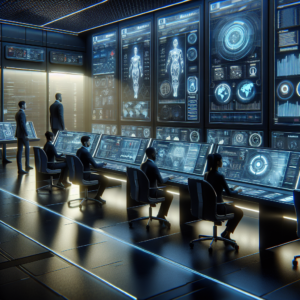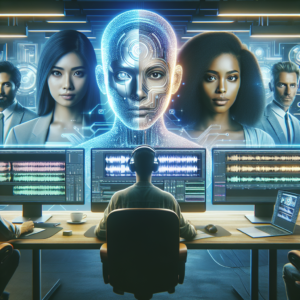Bad Trip Coming for AI Hype as Humanity Tools Up to Fight Back
As the world continues to embrace the advancements in artificial intelligence (AI), there’s a growing sentiment that the initial excitement and hype surrounding these technologies may soon face a challenging reality check. The landscape of AI is changing, and it seems that humanity is gearing up to confront both the benefits and the potential risks associated with these powerful tools.
The Rise of AI: A Double-Edged Sword
Artificial intelligence has seen remarkable growth in recent years, with businesses across various sectors leveraging AI-driven tools to enhance productivity, streamline operations, and improve customer experiences. Yet, while the advantages are tangible, the darker implications of widely adopting AI technologies cannot be overlooked.
Some of the pressing concerns regarding AI include:
1. Job Displacement: As AI continues to evolve, many traditional jobs may become obsolete, leading to significant workforce disruptions.
2. Ethical Dilemmas: The use of AI in decision-making processes raises questions about bias, accountability, and the ethical implications of machine learning algorithms.
3. Surveillance and Privacy: AI systems are increasingly utilized in surveillance applications, resulting in heightened worries over personal privacy and individual freedoms.
4. Dependency on Technology: With AI processing vast amounts of data and making critical decisions, there’s a risk that humanity may become overly reliant on these systems, potentially diminishing our ability to think critically and make informed choices.
These challenges demand urgent attention and a robust dialogue about how AI will impact society in both the short and long term.
Humans Taking Action: The Response to AI Challenges
Recognizing the potential risks associated with AI, experts and organizations are advocating for a more cautious approach. Here are several strategies being proposed to address the challenges posed by AI technology:
1. Regulation and Oversight: Governments and regulatory bodies must implement frameworks that ensure AI technologies are developed and used responsibly, minimizing risks to society.
2. Ethical Guidelines: Developing ethical guidelines for AI usage can help prevent bias in algorithms and ensure accountability in decision-making processes.
3. Public Awareness and Education: Raising awareness about AI and its implications is crucial. Educational initiatives can empower individuals to understand AI technologies and their potential impact on their lives.
4. Promoting Collaboration: Encouraging collaboration between tech companies, governments, and academia is essential for responsible AI development. Open dialogue can help address concerns while fostering innovation.
5. Reskilling the Workforce: As AI threatens job security in various sectors, investing in reskilling and upskilling programs can help workers transition to roles that require a human touch, creativity, and critical thinking.
The Future of AI: A Balanced Approach
While AI presents numerous opportunities for advancement, it is essential to strike a balance between embracing innovation and addressing the accompanying risks. A future in which humanity and AI coexist harmoniously is possible but requires proactive measures to ensure that technology serves humanity, not the other way around.
Responsible AI development will depend on:
– Understanding the societal implications of AI
– Developing technology that prioritizes human values
– Creating inclusive systems that benefit everyone
As we navigate this complex landscape, it’s crucial that we remain vigilant and engaged in discussions surrounding AI’s role in our lives.
Conclusion: Preparing for an AI-Driven World
In conclusion, the excitement surrounding artificial intelligence has sparked a wave of innovation and potential benefits for society. However, it is essential to approach this powerful technology with a critical mindset. The hype may soon face a reality check as humanity begins to confront the challenges and ethical considerations that come with AI.
To prevent a “bad trip” as the article suggests, we must prioritize responsible development, ethical standards, and rigorous oversight. By doing so, we can harness the potential of AI while mitigating its risks and ensuring a future where humanity and technology can thrive together.
As we look forward, the journey of AI is far from over. The coming years will be crucial in shaping how we integrate AI into our lives while safeguarding our values and freedoms. The tools are at our disposal; it’s up to us to use them wisely.



